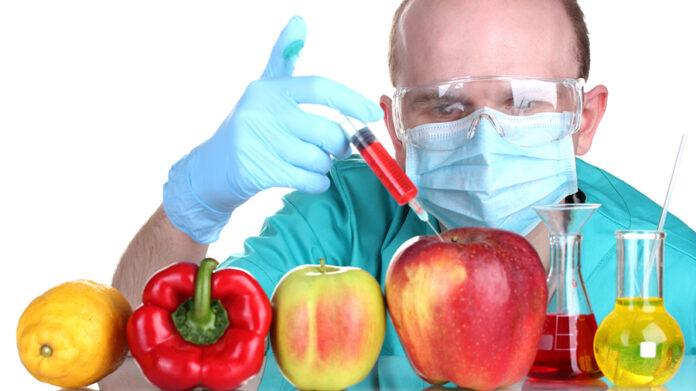Genetically modified foods or GM foods, also known as genetically engineered foods or bioengineered foods, are foods produced from organisms that have had changes introduced into their DNA using the methods of genetic engineering.
Common Genetically Modified Foods
- Milk
- Canola Oil
- Aspartame
- Soy
- Corn
- Potato
- Papaya
- Rice
- Tomato
- Cotton
Find the above list with details here.
How is this done?
Gene transfer technology is simply a sophisticated version of a cut-and-paste operation. Once the desired gene is identified in the native organism’s genome, it can be cut out, transferred to the target plant, and pasted into its genome. (The illustration below describes the “gene-gun” approach, which is one of several gene transfer methods.) Once the new gene has been introduced, the plant can be bred to create a new strain that passes the gene from generation to generation.
GM foods-merits and demerits
Before we think of having GM foods it is very important to know about is advantages and disadvantages especially with respect to its safety. These foods are made by inserting genes of other species into their DNA. Though this kind of genetic modification is used both in plants and animals, it is found more commonly in the former than in the latter. Experts are working on developing foods that have the ability to alleviate certain disorders and diseases. Though researchers and the manufacturers make sure that there are various advantages of consuming these foods, a fair bit of the population is entirely against them.
GM foods are useful in controlling the occurrence of certain diseases. By modifying the DNA system of these foods, the properties causing allergies are eliminated successfully. These foods grow faster than the foods that are grown traditionally. Probably because of this, the increased productivity provides the population with more food. Moreover, these foods are a boon in places which experience frequent droughts, or where the soil is incompetent for agriculture. At times, genetically engineered food crops can be grown at places with unfavourable climatic conditions too. A normal crop can grow only in specific season or under some favourable climatic conditions. Though the seeds for such foods are quite expensive, their cost of production is reported to be less than that of the traditional crops due to the natural resistance towards pests and insects. This reduces the necessity of exposing GM crops to harmful pesticides and insecticides, making these foods free from chemicals and environment friendly as well. Genetically engineered foods are reported to be high in nutrients and contain more minerals and vitamins than those found in traditionally grown foods. Other than this, these foods are known to taste better. Another reason for people opting for genetically engineered foods is that they have an increased shelf life and hence there is less fear of foods getting spoiled quickly.
The biggest threat caused by GM foods is that they can have harmful effects on the human body. It is believed that consumption of these genetically engineered foods can cause the development of diseases which are immune to antibiotics. Besides, as these foods are new inventions, not much is known about their long-term effects on human beings. As the health effects are unknown, many people prefer to stay away from these foods. Manufacturers do not mention on the label that foods are developed by genetic manipulation because they think that this would affect their business, which is not a good practice. Many religious and cultural communities are against such foods because they see it as an unnatural way of producing foods. Many people are also not comfortable with the idea of transferring animal genes into plants and vice versa. Also, this cross-pollination method can cause damage to other organisms that thrive in the environment. Experts are also of the opinion that with the increase of such foods, developing countries would start depending more on industrial countries because it is likely that the food production would be controlled by them in the time to come.
Something more for you




